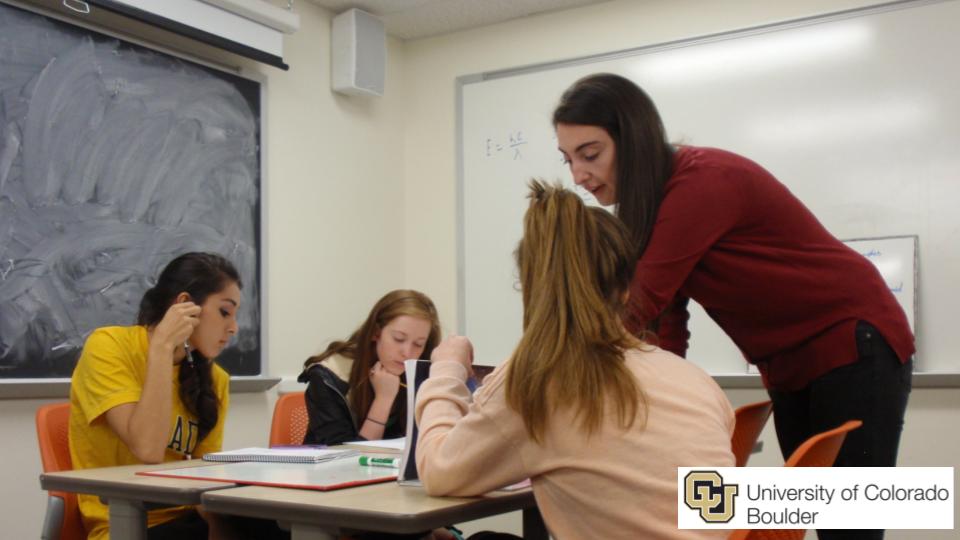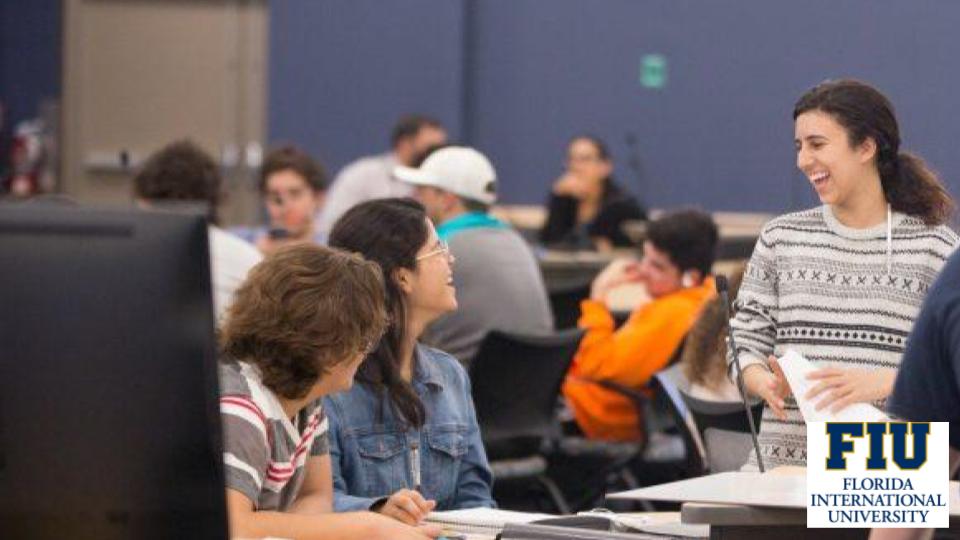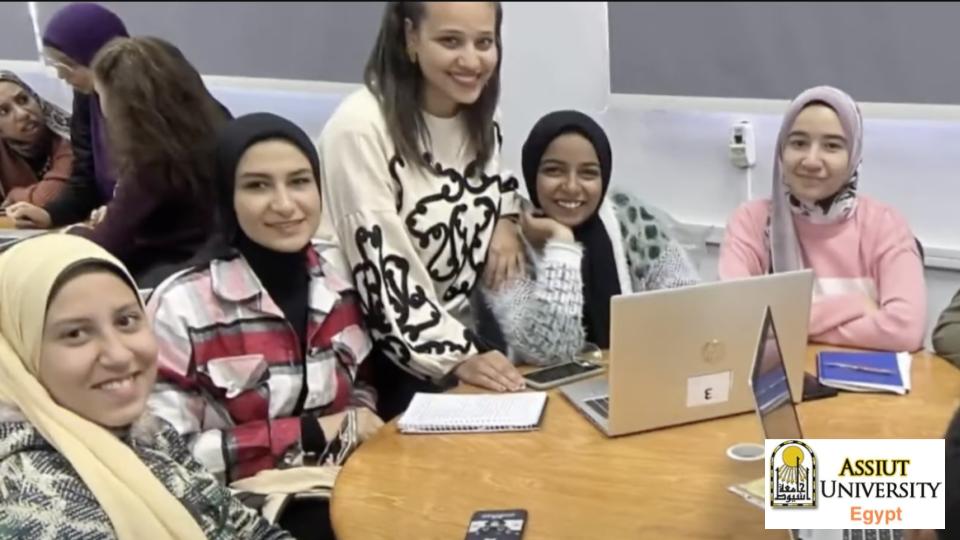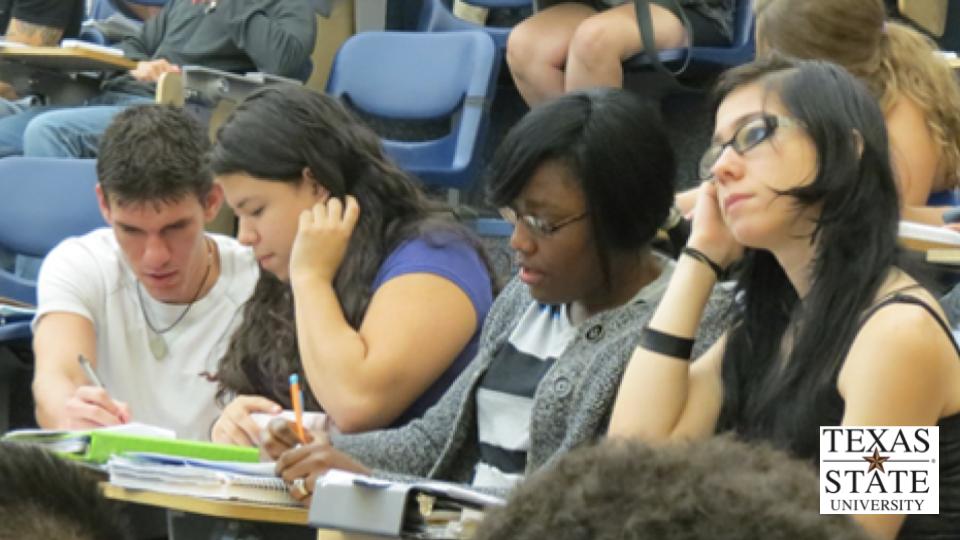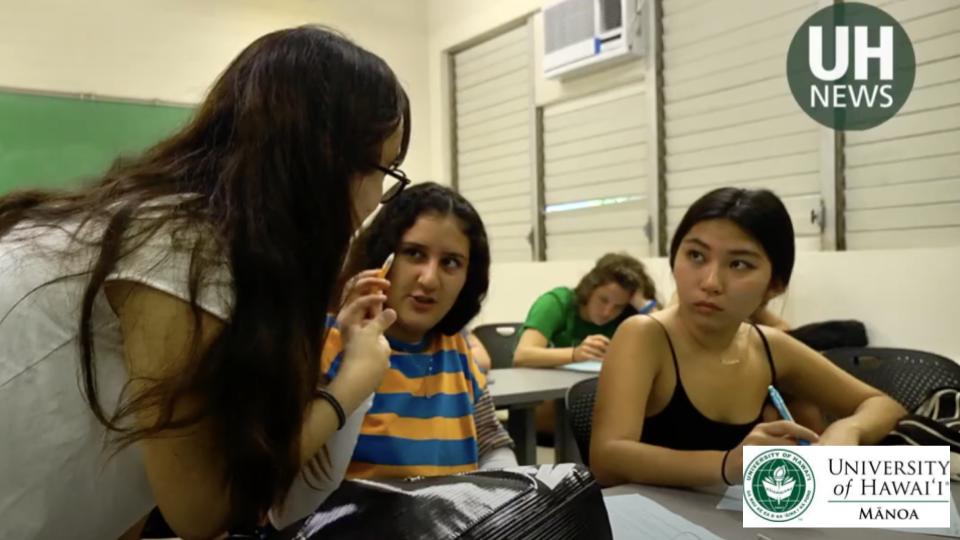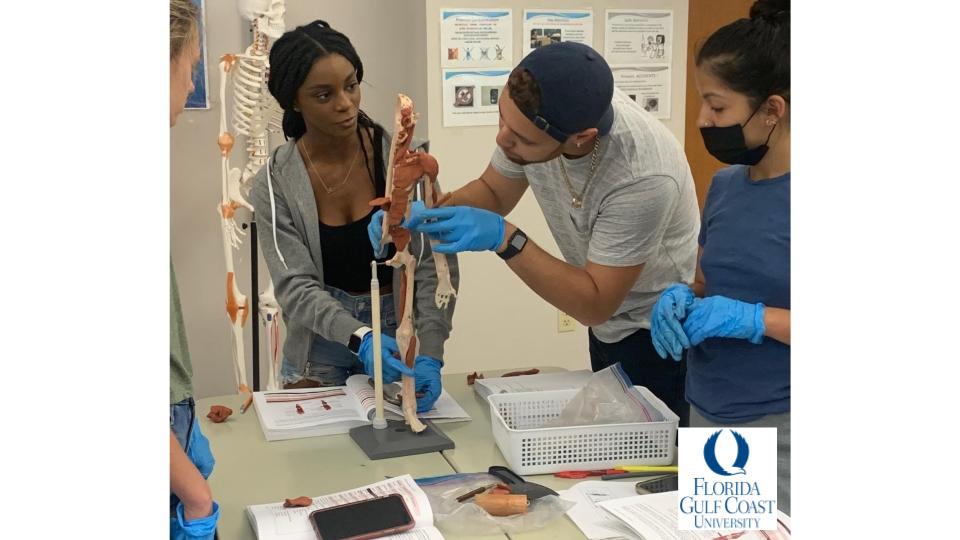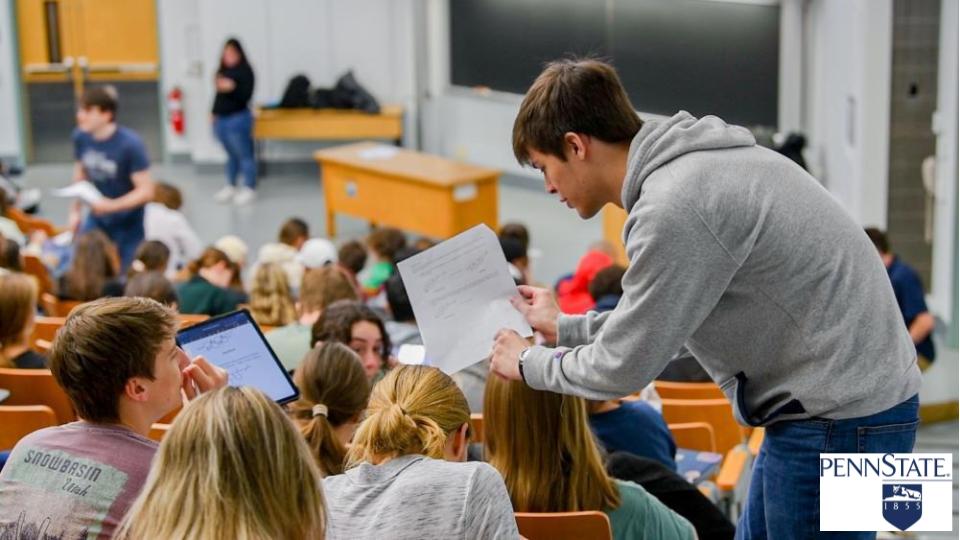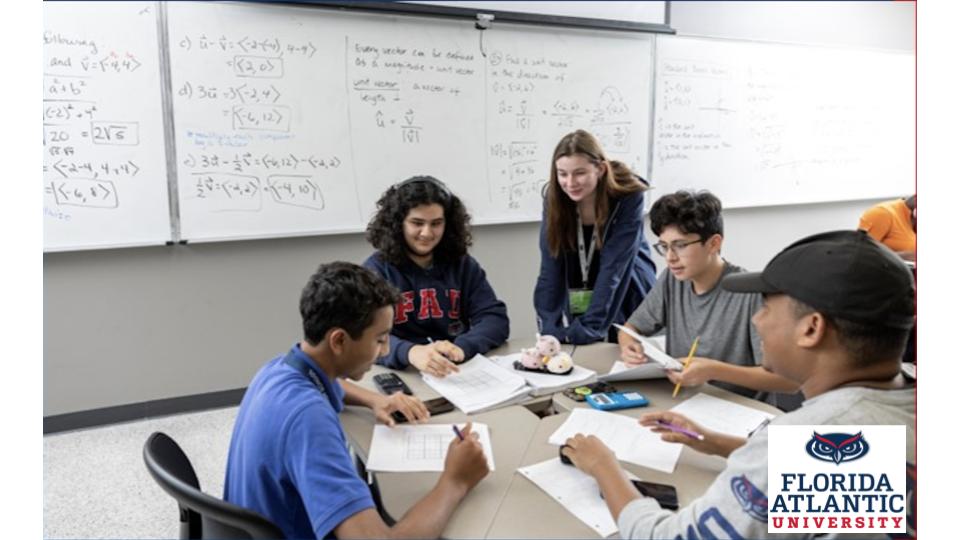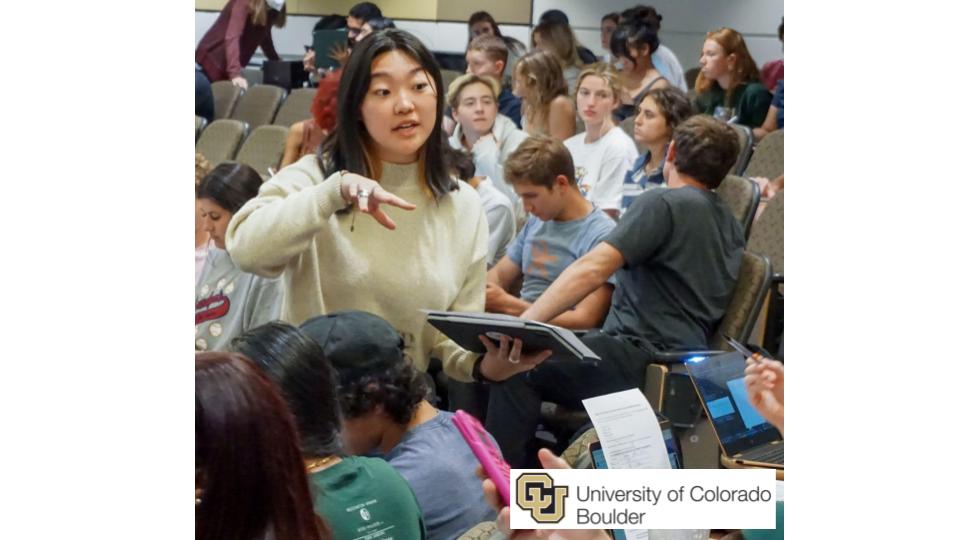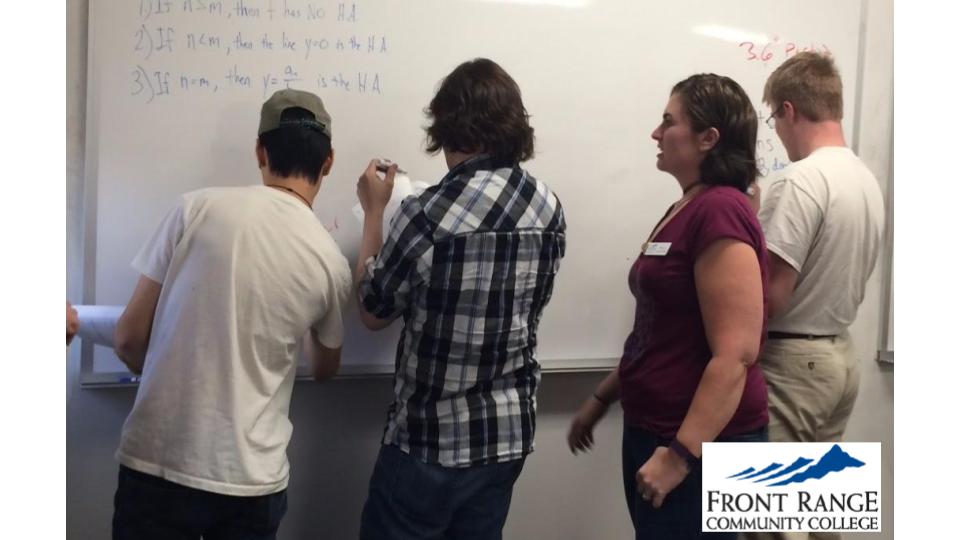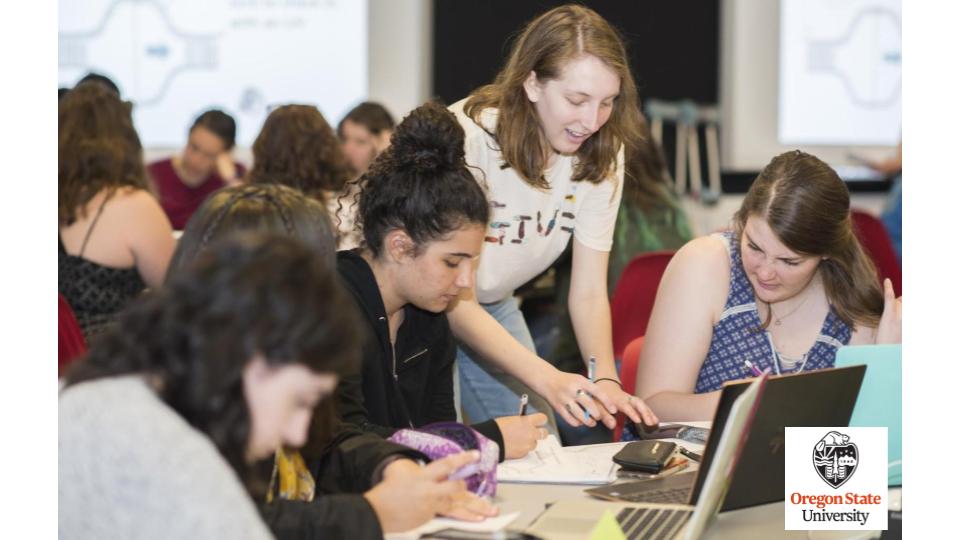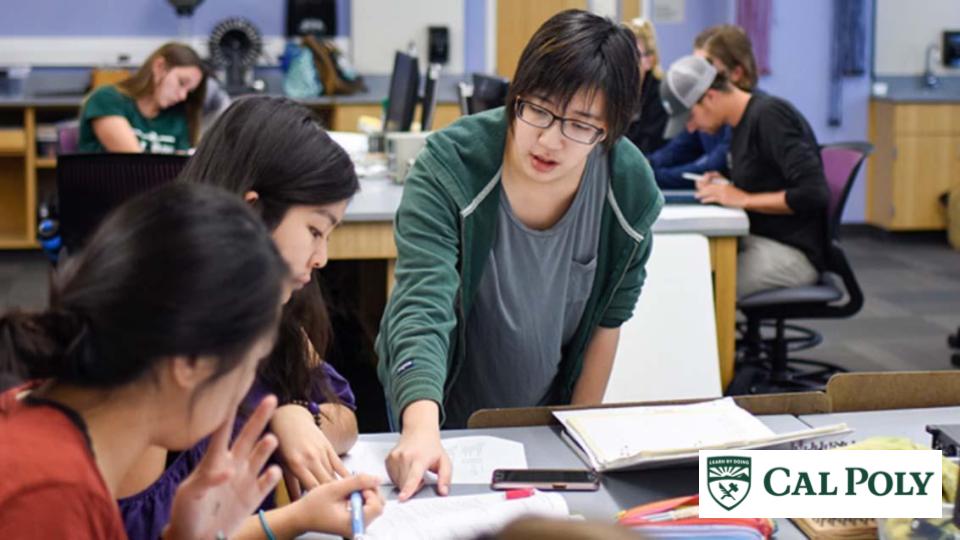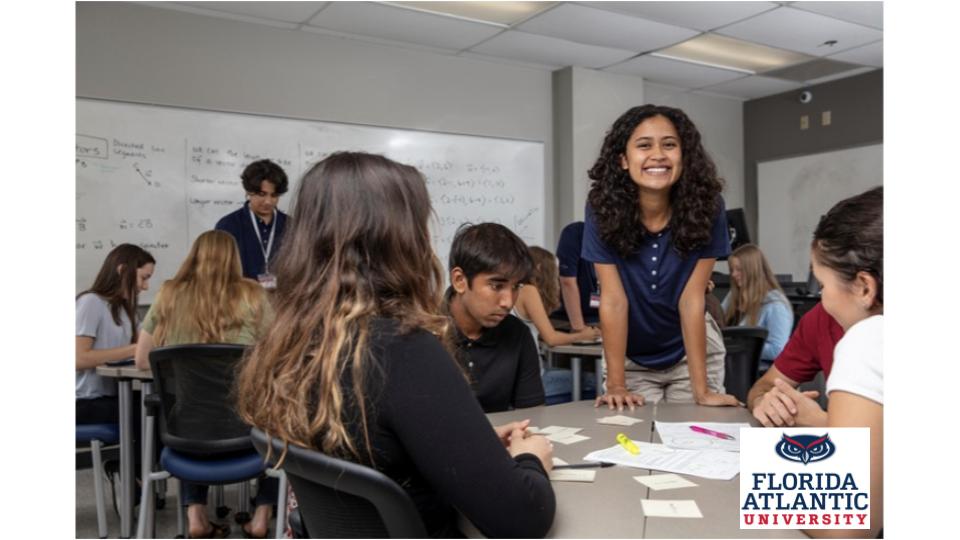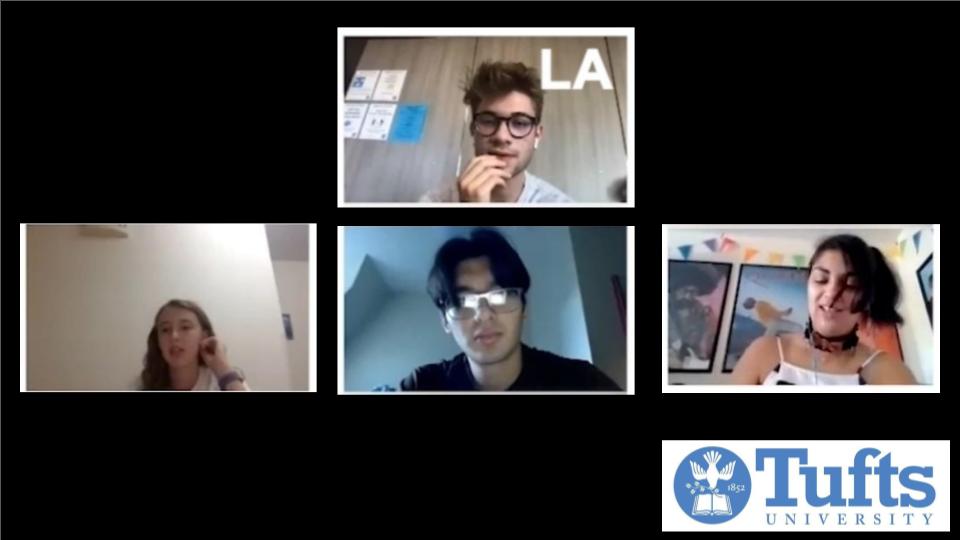LAs are Co-Designers in the Transformed Classroom
Instead of a top-down approach of an instructor lecturing to students, the LA model creates an instructional team (instructor and LAs) designed to guide students to deeper learning through equitable participation and active exploration. LAs facilitate small group discussion and guide students to articulate and defend their ideas in the transformed classroom environment. LAs are supported in this work by a pedagogy course with an LA pedagogy instructor and a weekly meeting with the course instructor.
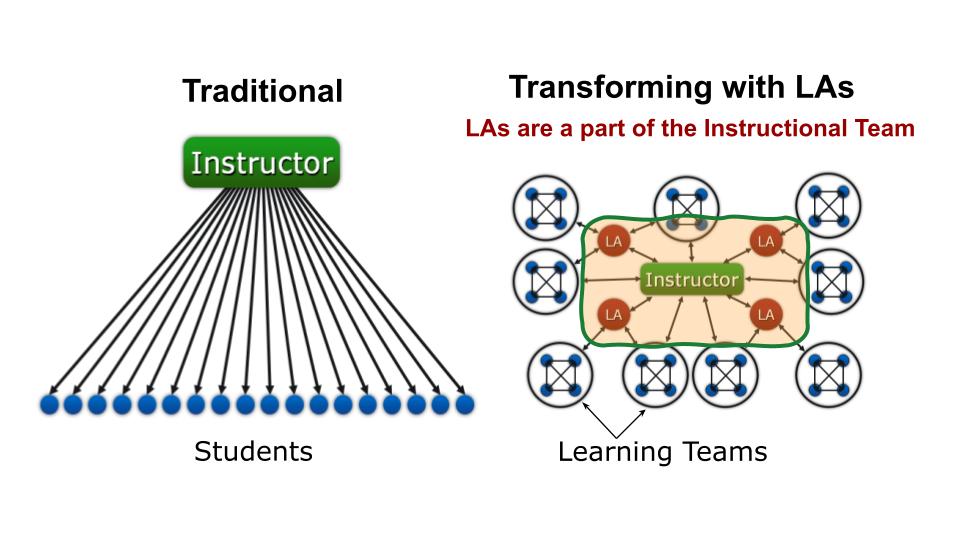
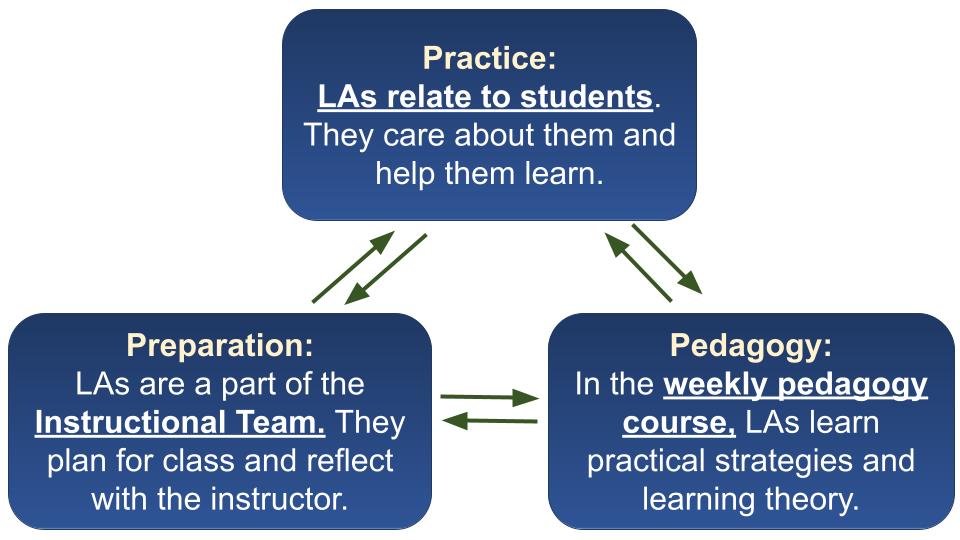
The Essential Elements of the LA Model
Practice:LAs interact with students by facilitating in-class discussions and activities. They focus on eliciting student thinking and helping students develop a shared understanding. Through their in-class interactions, they build relationships with students, allowing for enhanced support outside of class.
Preparation:LAs meet weekly with the course instructor to prepare for class, develop deeper content knowledge, and discuss how students are experiencing the course. LAs co-design with instructors and help implement class activities.
Pedagogy:LAs enroll in a special pedagogy course to support their development and growth as LAs. In this course, LAs learn evidence-based strategies, student-centered and inclusive teaching practices, and practical strategies. With their pedagogy course instructor, they set weekly goals and measure outcomes.
